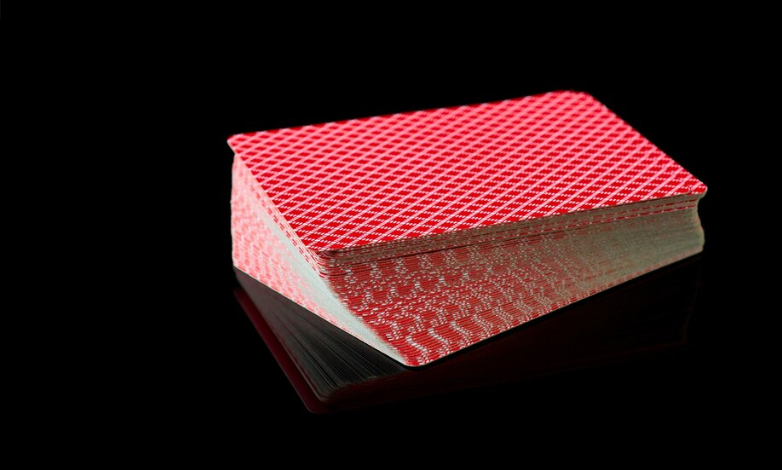What does muck mean in poker? Simply put, it’s when a player discards their cards face-down, without revealing them to the table. This move—often referred to as folding without showing—is used to keep opponents from gaining insight into your playstyle. It’s one of the most underrated strategies in poker, yet it holds tremendous value in both live and online games.
Whether you’re a casual player or sharpening your skills for high-stakes tournaments, understanding what does muck mean in poker can elevate your strategy, protect your image, and give you a psychological advantage over your opponents. In this in-depth guide, we’ll break down every angle of mucking so you know when to use it—and when not to.
What Does Muck Mean in Poker?
So, let’s break it down clearly: What does muck mean in poker? It’s the act of discarding your cards face-down into the pile of dead hands—called the muck pile—after deciding not to show your hand. You’re not just folding; you’re folding without showing your cards.
Mucking usually occurs:
- After you’ve lost a showdown and don’t want to reveal your hand
- When you’re folding pre-flop, mid-hand, or during betting rounds
- When using “auto muck” in 3 Card poker online to automatically discard losing hands
This strategy is common in both traditional poker and 3 card poker rules, where decision timing is key. Once a hand is mucked, it’s no longer in play. This irreversible action is why mucking requires careful timing. And again, what does muck mean in poker at its core? It’s a deliberate, strategic fold—designed to protect your hand history and mislead future reads from your opponents.
Muck vs. Fold vs. Show: What’s the Difference?
Understanding how mucking compares to folding and showing is essential. While they might seem similar, each serves a different purpose:
- Muck: Discard your cards face-down, especially at showdown, to avoid revealing your hand.
- Fold: Opt out of the hand before the showdown by surrendering your cards—usually also face-down.
- Show: Reveal your hand at the end of the round to compete for the pot or respond to a call.
This applies whether you’re playing standard poker or comparing strategies in rummy vs poker. Understanding this distinction can significantly impact your decision-making process.
Why Do Players Muck Their Hands?
The decision to muck isn’t random—it’s a calculated move used to:
- Protect strategy: Keeping your hand hidden helps you maintain a balanced range.
- Avoid embarrassment: You don’t have to reveal weak bluffs or misplayed hands.
- Control image: By hiding your hand, you control how other players perceive your playing style.
- Stay unpredictable: Uncertainty keeps opponents from making accurate assumptions about you.
Elite players like Phil Ivey, Daniel Negreanu, and Jamie Gold have all used mucking as part of a broader table image strategy. These professionals understand that what does muck mean in poker is not about giving up—it’s about holding your ground with silence.
Key Poker Terminology Related to Mucking
Understanding mucking starts with understanding the poker terminology that surrounds it. Here are some essential terms:
- Muck pile: The collection of discarded hands and burned cards.
- Showdown: The point when players reveal their hands to determine the winner.
- Auto muck: A setting in online poker that automatically hides losing hands.
- Live muck: Physically discarding your hand without showing it.
- Dead hand: A hand that can no longer win because it’s been mucked.
Learning this poker terminology will give you a clearer understanding of the nuances involved in mucking.
When Should You Muck a Hand?
Knowing when to muck a hand in poker is just as important as knowing how. Mucking is a tool best used in specific scenarios:
- After losing a showdown and wishing to conceal your hand
- When bluffing and your opponent calls—you don’t want to show the bluff
- During casual folds to maintain unpredictability
- In online poker, where auto muck saves time and hides patterns
However, you should never muck if there’s even a chance your hand is the winner. Misreading the board and mucking a winning hand is a painful and permanent mistake.
Real Poker Scenarios That Show Mucking in Action
To better understand what does muck mean in poker, let’s look at real-world examples where mucking played a key role:
- Antonio Esfandiari once mucked a strong hand in a million-dollar tournament, accidentally costing himself the pot.
- Jamie Gold used mucking to constantly throw opponents off during his legendary WSOP win.
- Countless online poker pros rely on auto muck settings to protect themselves from unnecessary exposure.
Strategic misdirection, like the kind seen in what is double down in blackjack, plays a similar role in advanced gameplay across card tables.
Mucking Styles: How Players Do It
The way you muck can say a lot about your style. Here are some popular mucking gestures seen at the poker table:
- The Push: A smooth shove into the muck pile
- The Snap: A quick toss of the cards, often with frustration
- The Helicopter: A flashy upward flick followed by a soft drop
- The Ghost Fold: A silent slide with no eye contact or reaction
While flair won’t win you pots, these methods show how personal mucking can be. The important thing is to be clean, deliberate, and subtle—never exposing even a glimpse of your cards.
Strategic Advantages of Mucking
Understanding what does muck mean in poker isn’t complete without recognizing its strategic value. Here’s what mucking can do for your long-term poker success:
- Conceals your betting range
- Reduces chances of being profiled
- Keeps your opponents in the dark
- Prevents tilt by hiding losses
- Supports an aggressive or tight image—whichever you’re building
Mucking isn’t about hiding in fear; it’s about maintaining control in a game where information is power.
Pro Tips for Mastering the Art of Mucking
To perfect your mucking game, follow these expert tips:
- Double-check your hand before mucking—mistakes are costly.
- Only muck at the right time—don’t be hasty at showdowns.
- Stay consistent—avoid giving away tells in your mucking motion.
- Use auto muck in online games to stay secure.
- Don’t let ego make you show a losing hand—muck with confidence.
Mucking is as much about discipline as it is about deception.
Final Thoughts
By now, you should have a crystal-clear answer to the question: what does muck mean in poker? It’s not just a fold—it’s a calculated decision to withhold valuable information. It’s folding with intention, designed to protect your strategy, confuse your competition, and sharpen your long-term edge at the table.
Whether you’re a beginner or a seasoned grinder, mucking is a subtle move with serious impact. Mastering it can take your game from reactive to proactive—and that’s where real poker power lies.
Ready to Take Your Poker Game to the Next Level?
Join Mighty Crown – where strategy meets sophistication. Play bold. Play smart. Play like a champion.
Frequently Asked Questions
It means discarding your hand face-down, without revealing your cards to others. It’s typically done to hide your hand from opponents during a fold or showdown.
You muck when you’ve lost a hand or don’t want to reveal your cards at the showdown. You can also muck during folds to protect your strategy.
Yes, mucking is generally allowed, but some rooms may require you to show your cards at showdown if you’re called. Always check the house rules.
No. Once your hand is mucked, it’s considered dead—even if it was the winner. Always confirm before mucking.
Folding happens mid-hand to exit the game, while mucking usually happens at the showdown to discard without revealing.
Yes, positively or negatively. Frequent mucking can make you seem unpredictable or overly secretive. Use it to control your table image.
Auto muck automatically hides your losing hands at showdown, helping you avoid giving away information to opponents.
Indirectly, yes. By mucking consistently, you may appear tighter or more conservative, which you can exploit later with bold plays.

